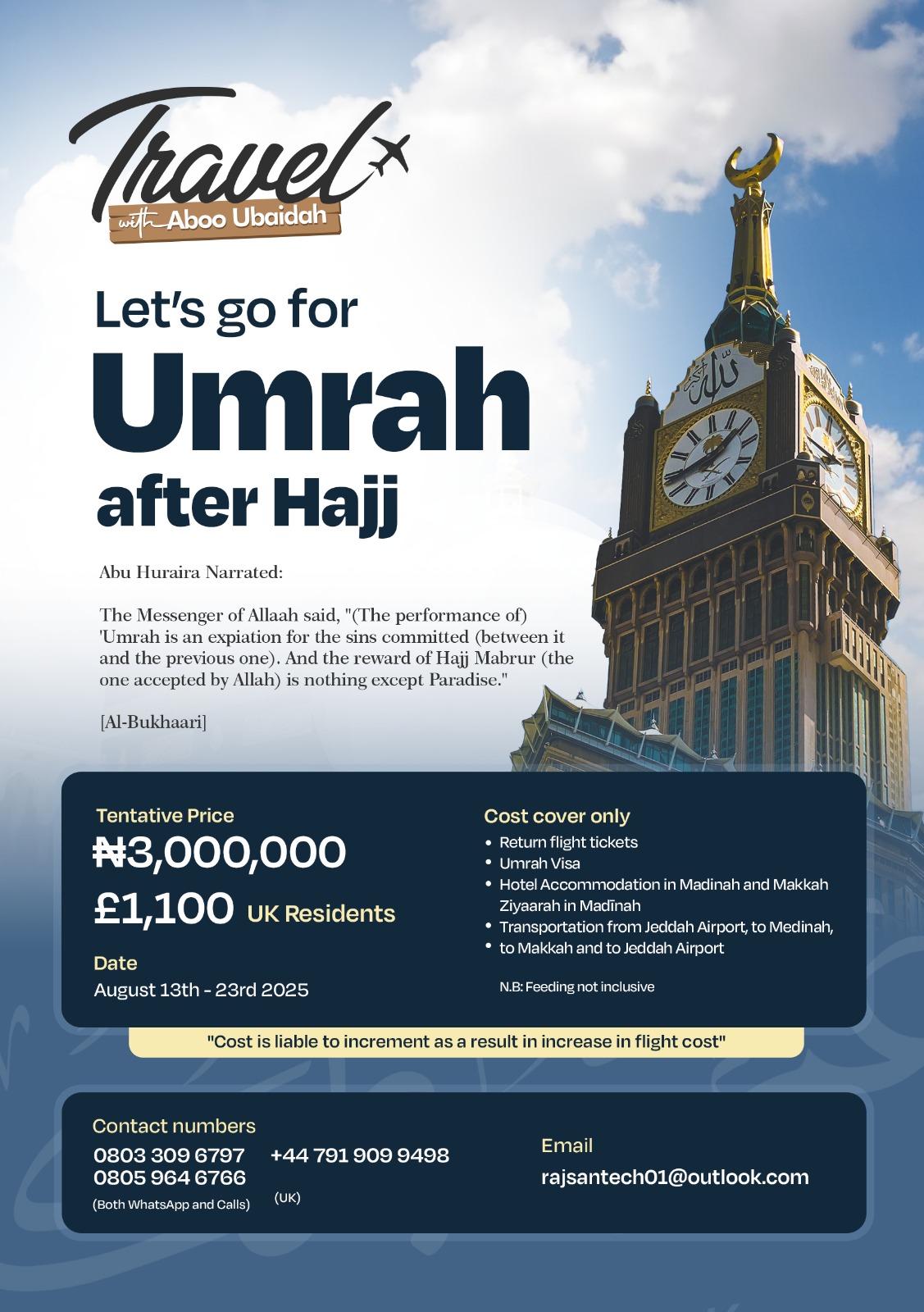Originally written about a year ago by Aboo Aamir
Before the 1993 elections, the Da’wah of Sunnah in South West Nigeria was still in its early stages. There was little agitation or involvement in the political sphere, and the few Sunnah adherents focused on teaching each other the basics of the Sunnah. Although their resources were limited, their sincerity and commitment were evident. It was generally agreed that democratic politics was contrary to the Da’wah, so everyone avoided it. The election was won by a Muslim-Muslim ticket in a landslide, but it was later annulled. This decision deeply hurt those of us who had not yet embraced the Sunnah; MKO Abiola was our hope for a better Nigeria. We protested the annulment, made bonfires, and witnessed our protesting comrades looting markets and shops (though I personally abhorred such actions). May Allah forgive us. Meanwhile, the few Sunnah adherents maintained their focus on their principles and earned respect.
By 1995, the Sunnah was becoming more prominent in the community. People were learning Arabic and engaging with the original texts of classical Islam. While Aqeedah studies were not yet advanced, those committed to the Sunnah remained dedicated. During the military regime, everyone generally kept to their own affairs, except for the NADECO group led by Abraham Adesanya and Beko Ransome-Kuti, with whom no Sunnah follower would align.
The 1999 elections brought a new dynamic as the North sought to compensate the South West with a presidential candidate, even though he was not their preferred choice. Their choice was from a long-standing political clique, which, as those of us in the Sunnah knew, would not benefit Muslims. We focused on our Deen.
The real issue began before the 2003 elections, especially after the tragic killing of Shaykh Mahmood Ja’far in 2007. This was when some Muslim politicians began positioning themselves as successors to the Christian president. They traveled around the country to stir up Muslim sentiment and awareness.
They realized that the number of Sunnah followers in the South West had increased and could be influential. Our leaders were tempted and bought off with cash, leading to a shift in the Da’wah. If anyone claims otherwise, I am prepared to provide names and details, Insha’Allah.
Since then, the focus has shifted to voting based on Muslim interests—to prevent marginalization, to ensure access to Hajj, and so on. Alhamdulillah, some resilient students and teachers of Sunnah remained unaffected by these political claims.
It is unfortunate that many of those advocating for Sunnah followers to vote today were just children around 1999-2003. It is also regrettable that many of the leaders who were once like the Sahabah are now fully immersed in politics, engaging in deals with Christian politicians, and leading their younger brothers who think they understand the Shari’ah into questionable political causes.
O Allah, protect us.
It is truly disheartening, by Allah.
Yes, Muslims have become part of Nigerian politics and exert considerable influence. We know the type of Muslims who form alliances with non-Muslims for political gain. We are aware of them, and you are too.
So why should we join them? Why should we be encouraged to participate?
O Allah, protect us.
O Allah, protect us.
We have said our own, and we will continue to speak out, Insha’Allah.

